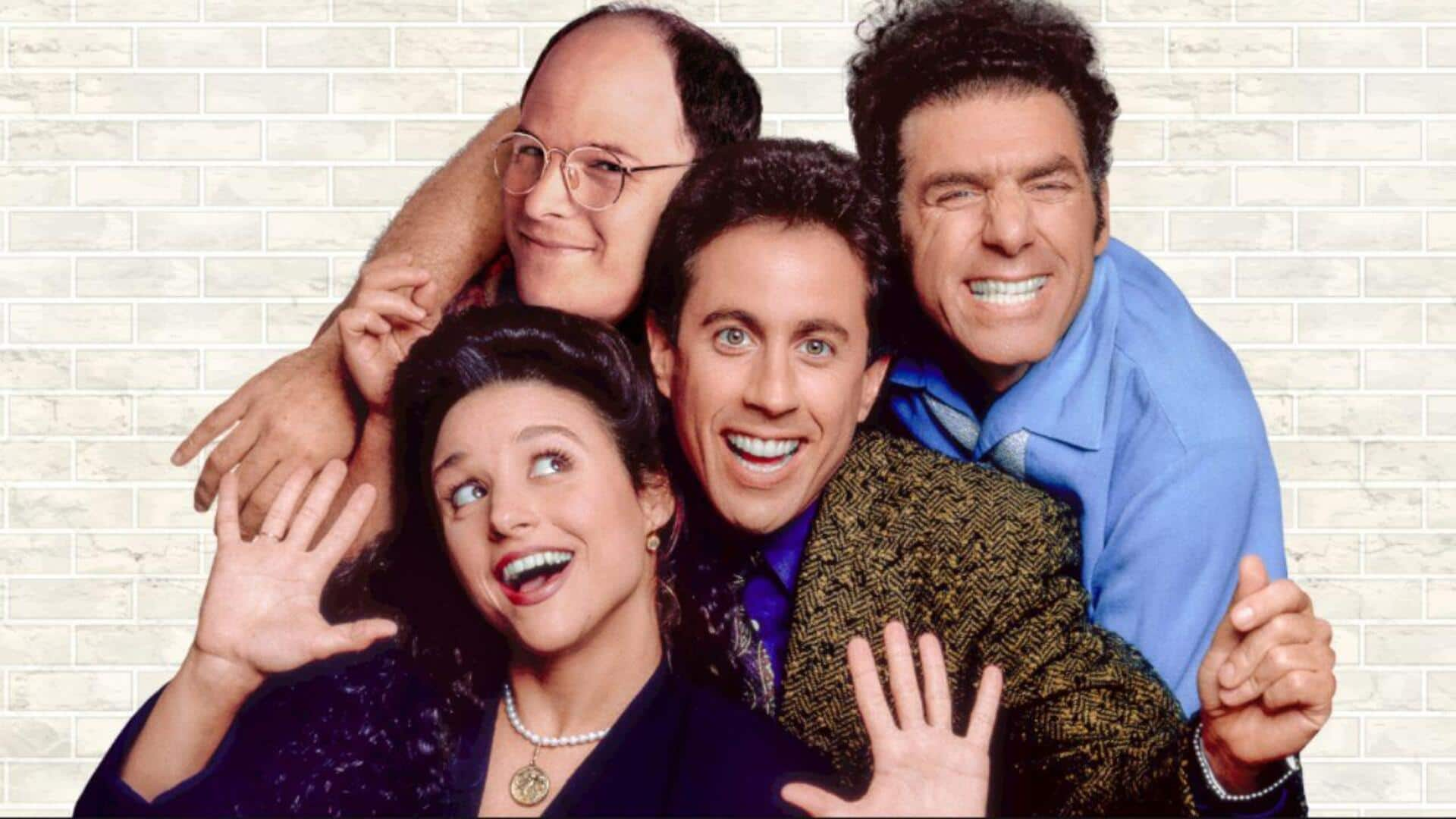
Why 'Seinfeld' still defines the quirks of American culture
What's the story
The popular 90s sitcom Seinfeld often reflected the daily life and culture of America. Through its distinctive humor and relatable situations, it captured several elements of American society. The show reflected the quirks and nuances of daily life so well that it became a cultural phenomenon. Here are five times Seinfeld captured what it meant to be American, resonating with audiences across the nation.
Drive 1
The contest: A reflection on self-control
In the famous The Contest episode, Seinfeld delves into the realms of self-control and the challenges one faces. This particular storyline struck a chord with so many of its viewers as it highlighted a struggle most of us face- discipline. The episode's frankness over such a general theme shone a light on an element of American life everyone could relate to, how personal battles are often fought in silence.
Drive 2
Soup Nazi: Customer service culture
The Soup Nazi episode stands out as iconic for its depiction of customer service dynamics. It humorously amplifies the experience of handling strict service providers, mirroring America's rich service industry culture. The episode went on to become an unforgettable one for its catchphrases and showed how Americans deal with various customer interactions every day, often requiring patience and adaptability.
Drive 3
Festivus: Celebrating unconventional traditions
Introduced in Seinfeld, Festivus became an iconic symbol for non-traditional celebrations in America. The fictional holiday emphasized how Americans tend to create their traditions outside mainstream festivities. By highlighting Festivus's quirky customs like airing grievances, Seinfeld tapped into the individuality spirit thriving in American culture.
Drive 4
Parking garage: Urban life challenges
In The Parking Garage episode, Seinfeld encapsulates the essence of urban living challenges that many Americans face. The characters's battle to locate their car in a gigantic parking structure echoes the real-life exasperations encountered in busy cities across America. Such a situation struck a chord with viewers who've dealt with similar urban hindrances.
Drive 5
Master of your domain: Personal independence
The phrase "master of your domain," popularized by Seinfeld, embodies themes of personal independence and autonomy cherished by many Americans. The idea emphasizes a person's authority over their own life decisions and choices—a fundamental element deeply embedded in American culture. It resonates widely with audiences seeking empowerment through self-governance.